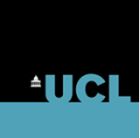Statistics
Statistics is a branch of mathematics dealing with the collection, analysis, interpretation, presentation, and organization of data. In applying statistics to, for example, a scientific, industrial, or social problem, it is conventional to begin with a statistical population or a statistical model process to be studied. Populations can be diverse topics such as "all people living in a country" or "every atom composing a crystal". Statistics deals with all aspects of data including the planning of data collection in terms of the design of surveys and experiments. See glossary of probability and statistics.
Economics
The blunt truth about the politics of climate change is that no country will want to sacrifice its economy in order to meet this challenge.
Tony Blair, address to the 2005 G8 climate change summit in London, as reported by David Adam, "Blair signals shift over climate change", The Guardian, 1 November 2005.
Statistics
I wish that people would be persuaded that psychological experiments, especially those on the complex functions, are not improved (by large studies); the statistical method gives only mediocre results; some recent examples demonstrate that. The American authors, who love to do things big, often publish experiments that have been conducted on hundreds and thousands of people; they instinctively obey the prejudice that the persuasiveness of a work is proportional to the number of observations. This is only an illusion.
Alfred Binet (1903). L’Etude experimentale de l’intelligence. Paris: Schleicher Freres and Cie. p. 299; As cited in: Carson (1999, 360)

